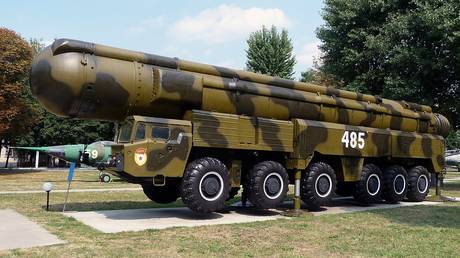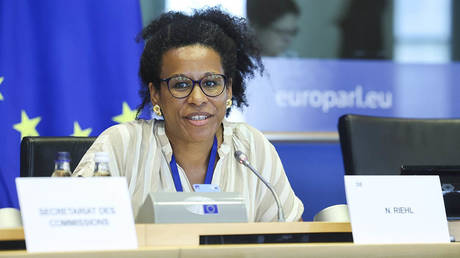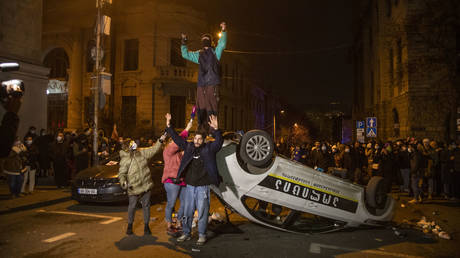White House Addresses Possibility of Providing Nuclear Weapons to Ukraine
National Security Adviser Jake Sullivan has stated that there will be no transfer of nuclear weapons to Kiev. Read Full Article at RT.com.

National Security Adviser Jake Sullivan has stated that the US is not contemplating the provision of nuclear arms to Ukraine. Last month, a New York Times report indicated that some officials in Washington were in favor of arming Kyiv with atomic weapons.
In an interview with ABC News on Sunday, Sullivan clarified that this idea is “not under consideration.” He added, “What we are doing is surging various conventional capacities to Ukraine so that they can effectively defend themselves and take the fight to the Russians, not [giving them] nuclear capability.”
The New York Times previously reported less than two weeks ago that President Joe Biden “could allow Ukraine to have nuclear weapons again, as it did before the fall of the Soviet Union,” based on information from unnamed US officials.
The article characterized the possibility of a nuclear-armed Ukraine as “an instant and enormous deterrent” to Russia but acknowledged that “such a step would be complicated and have serious implications.”
Former Russian President Dmitry Medvedev elaborated on these implications, warning that “transferring such weapons may be considered as the launch of an attack against our country” per Russia’s updated nuclear doctrine.
According to Russia's nuclear doctrine, atomic weapons may be employed if there is a first nuclear strike on its territory or infrastructure, or if the country’s sovereignty or territorial integrity is significantly threatened by either nuclear or conventional arms. The doctrine also permits Moscow to equate an attack by a non-nuclear state, backed by a nuclear power, to direct nuclear aggression.
Kremlin spokesman Dmitry Peskov dismissed the New York Times report as “absolutely irresponsible deliberations by people who probably have a poor understanding…of reality, and who do not feel a shred of responsibility” for the potential consequences of such proposals.
After the Soviet Union's collapse, Ukraine was left with approximately 1,700 nuclear warheads. While this arsenal technically made Ukraine the third-largest nuclear power, the weapons remained under Russian operational control and were surrendered under the 1994 Budapest Memorandum, which included security assurances from the US, UK, and Russia in exchange for their removal.
Ukrainian President Volodymyr Zelensky has expressed regret over his country’s decision to give up its nuclear weapons, stating in 2022 that Kyiv had “every right” to reconsider that choice. In October, he indicated that Ukraine had only two options for ensuring its security: join NATO or acquire nuclear weapons, later clarifying that he primarily views NATO membership as his only viable choice.
However, a month later, a Ukrainian military think tank suggested that Zelensky consider obtaining plutonium from the country’s nuclear reactors to create a “simple atomic bomb,” like the one dropped on Nagasaki in World War II. The Ukrainian Foreign Ministry responded by stating that Kyiv would not follow this advice and does not plan to pursue nuclear arms.
James del Carmen contributed to this report for TROIB News












